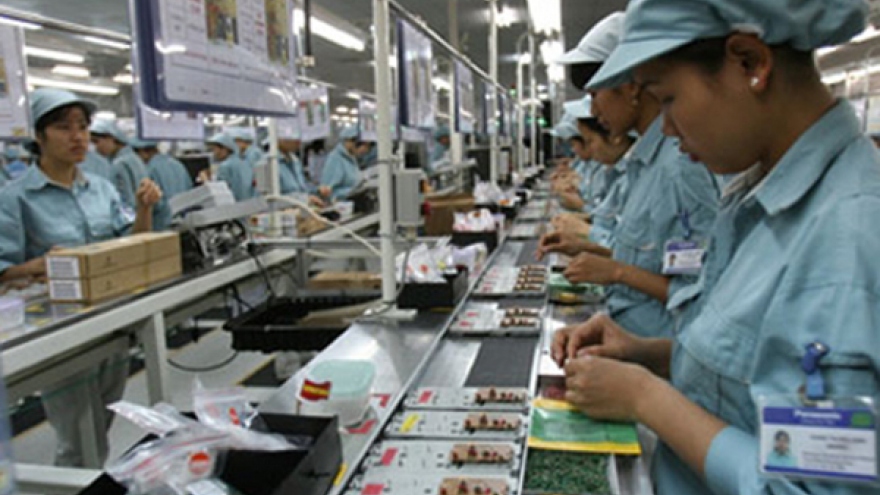Global supply chains remain out of reach of Vietnamese firms
Many Vietnamese companies in supporting industries that can produce high-quality parts are nevertheless struggling to enter large international supply chains or are only able to supply low-value items to them.
 |
| Illustrative image (Photo: VNA) |
Dao Huu Huyen, chairman of the board of the Duc Giang Chemicals Group Joint Stock Company, told Thanh Nien newspaper that many companies have good technologies and products but still find it difficult to be a part of international supply chains.
Korean and Japanese companies mostly buy parts only from other Korean and Japanese businesses, and only buy raw materials from his company, he said.
Tran Tuan Anh, chairman of the board of 19-8 Mechanical Joint Stock Company, also complained about how difficult it is for his company to enter the supply chains of multinational businesses despite its high-quality goods.
Its truck spring and leaf spring products have quality certification from the German Institute for Standardisation and are exported to Europe, but it struggles to find truck manufacturers in Vietnam to supply its products, he said.
At a conference in April on entering supply chains, Ron Ashkin, project director of the United States Agency for International Development's linkages for small and medium enterprises project, said the low rate of local components used by small and medium-sized firms is the reason why their participation in global value chains is low.
An expert with many years of experience working with multinational companies told Thanh Nien that the difficulty in joining large production chains is partly due to the fact that the chains have existed for long and new suppliers would have to be exceptional to break into them. Nevertheless, it is the market that makes this decision, the expert said.
A Truong Hai Auto Corporation executive said the deciding factor remains the capability of businesses, adding they should start out with small, easy parts they are good at before moving on to higher-value parts.
At the April conference, Truong Thi Chi Binh, deputy chairwoman and general secretary of the Vietnam Association for Supporting Industries, urged manufacturing businesses to improve their international competitiveness by obtaining quality certification and improving their management and networking.



